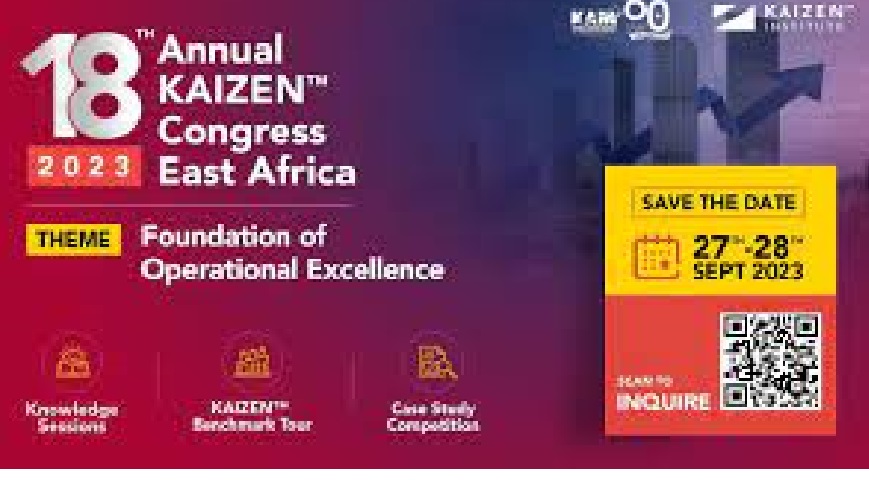This morning marked the commencement of the 18th Annual Kaizen Congress, with a welcoming reception jointly hosted by the Kenya Association of Manufacturers (KAM) and the Kaizen Institute.
The launch of the KAM-KAIZEN program in 2005 played a pivotal role in urging the local industry to adopt Kaizen techniques.
The Kaizen Institute is a global organization providing consulting and training services to businesses across the Americas, Europe, the Middle East, Asia-Pacific, and Africa. Their services encompass benchmark tours, certification, training, and consultation.
Over the past 18 years, KAM has been at the forefront of advocating for the adoption of the Kaizen approach. In pursuit of this objective, they have collaborated closely with Kaizen Institute Africa.
"Continuous improvement is an ongoing journey," remarked KAM Chair Rajan Shah during the opening session. Organizations are perpetually committed to enhancing their operations. Efficiency in service delivery hinges on the interdependence of quality, productivity, and profitability.
Delivering goods and services that align with customer needs and desires is another facet of ensuring quality. As quality standards ascend, so do revenue, cost-effectiveness, and the capital invested in the process.
Furthermore, he emphasized that as an organization improves its efficiency and reliability, it elevates its standing in the marketplace, leading to customer retention and an expanded market share.
Similarly, these enhancements stimulate growth in sales volume, distinguish the provider from competitors, and lessen the provider's dependence on price-based competition.
Vimal Shah, chairman of Bidco Africa, who was also present during the event, reaffirmed that Kaizen is a continuous improvement process that focuses on decreasing waste in order to ultimately boost performance.
He pointed out that while most of us in business often emphasize gaining a competitive advantage, it's equally crucial to contemplate embracing a collaborative advantage.
In their pursuit of refining processes for the overall sustainability and enhanced performance of their enterprises, they might gain significant insights and best practices from their peers through collaborative efforts.









